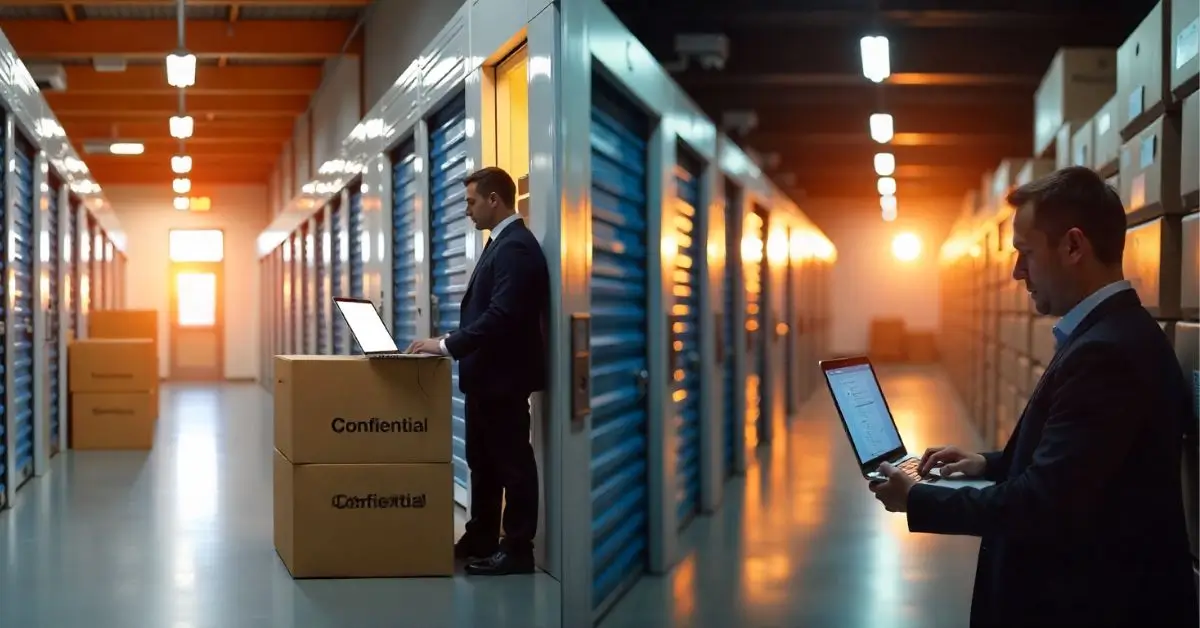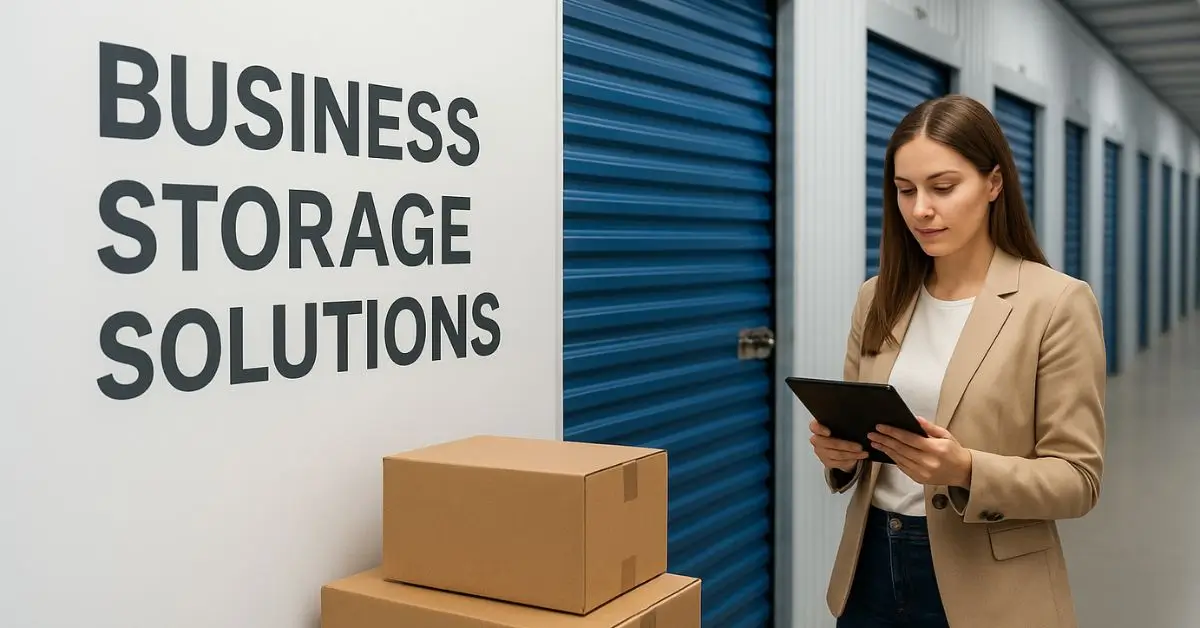If you’re juggling tight office space, seasonal inventory, sensitive documents, or fast-growing e-commerce orders, you’re not alone—it can feel like storage headaches are piling up. Whether you’re a small business owner, office manager, startup founder, or retailer, finding the right storage that’s secure, flexible, and cost-effective isn’t just a nice to have—it’s vital for smooth operations and peace of mind.
Let’s explore how to choose smart, scalable business storage solutions—and find what truly fits your needs.
Quick Answer
The best business storage solutions balance security, scalability, and affordability—like climate-controlled self-storage, flexible warehouse services, or encrypted cloud systems—so you can protect documents, inventory, and equipment while adapting as your operations grow.
Understanding Your Storage Needs (What type of storage does my business need?)
Think about what you’re storing—inventory, records, equipment, or digital files—and the “how” and “when” of access. Are you looking for:
- Temporary overflow during seasonal peaks?
- Long-term document storage that’s safe and compliant?
- Secure file sharing and backups for remote teams?
Answering “What type of storage does my business need?” helps you match intent with solution.
Flexible Storage Rentals & Warehouse Storage Services
In 2025, businesses increasingly favor flexibility over long-term leases. On-demand storage rentals let you scale up or down as seasons or projects demand (RISE Commercial District).
Pros:
- Lease only what you need
- Customizable layouts and shelving
- Climate-controlled options to protect inventory
Great for retailers, e-commerce brands, and growing startups needing affordable, adaptable space.
Secure Business Storage & Document Storage for Businesses

If you’re safeguarding sensitive files or equipment, security and reliability matter most. For physical goods, self-storage units with 24/7 surveillance, access codes, and monitoring provide peace of mind (firststorage.com).
Looking digital? Trusted cloud options like Tresorit (end-to-end encryption, zero-knowledge), Proton Drive (HIPAA, GDPR compliant), Dropbox Business, and Box offer secure, collaborative cloud storage (Wikipedia, Lifewire, Tom’s Guide).
These suit office managers, corporate decision-makers, and anyone storing sensitive business files.
Storage Solution Comparison
| Solution Type | Best For | Strengths |
|---|---|---|
| Flexible warehouse rentals | Inventory overflow & seasonal storage | Scale easily, customizable, cost-effective |
| Climate-controlled self-storage | Sensitive inventory, documents, equipment | Protects from heat, humidity |
| Secure on-site cloud storage | Daily access, collaboration, backup | Fast access, integrates with workflows |
| Encrypted cloud storage services | Confidential files, compliance needs | Highest security, regulatory-friendly |
Affordable Commercial Storage Near Me
Proximity matters—lower transport costs and faster access. Look for local providers offering secure, flexible, climate-controlled self-storage or warehouse services for the best value.
Self-Storage vs. Warehouse: Which Is Better for Business?

Self-Storage: Smaller units, often climate-controlled, great for parts or documents.
Warehouse: Bigger footprint, ideal for pallets or large-scale inventory.
Think again about what you’re storing and how often you need it.
Cloud Storage Solutions for Business Inventory and Files
Top cloud options in 2025:
- Proton Drive for Business—end-to-end encrypted, ISO 27001, HIPAA/GDPR compliant (Lifewire)
- Tresorit—Swiss-based zero-knowledge encryption (Wikipedia)
- Dropbox Business / Box / OneDrive—great for collaboration, integrations, and scaling (Tom’s Guide, Wikipedia, Cloudwards)
Cloud wins on scalability, remote collaboration, and backup reliability.
FAQ’s
Q1: What’s the difference between self-storage for companies and warehouse storage services?
Self-storage units are smaller, often indoor, and perfect for documents or small inventory. Warehouses offer larger space and logistics amenities like loading docks and pallet racking.
Q2: Are climate-controlled business storage solutions worth it?
Absolutely—temperature and humidity control protect sensitive items and avoid mold, warping, or damage, especially in climates like yours.
Q3: Is cloud storage enough for secure file backups?
Yes—especially encrypted services like Proton Drive or Tresorit. But for physical goods or documents, it’s best paired with a physical storage option.
How to store business inventory securely?
Use climate-controlled commercial storage units or warehouse services with strong security features—locks, cameras, access logs. Consider cloud backups if digital records are involved.
Cost of renting business storage units per month
Rates vary widely. Self-storage might cost a few hundred dollars for moderate space. Warehouses depend on volume and location. Cloud storage pricing often starts at $5–$20 per user/month with 1 TB or more (Lifewire, Tom’s Guide).
Best business storage solutions for small businesses
Start with secure cloud for minimal upfront cost and high flexibility. If you need storing goods or documents, consider local flexible storage rentals or climate-controlled units nearby.
Flexible warehouse storage for growing businesses
Look for providers offering month-to-month leases, scaling options, and adjustable layouts to suit your evolving operations (RISE Commercial District).
Business storage solutions with 24/7 access
Many self-storage and warehouse facilities provide round-the-clock access and surveillance. For digital, cloud storage offers 24/7 access from any device.
Author Bio
Jane Miller is a content strategist and writer with over 7 years of experience producing reader-first business guides. She holds a B.A. in Communication and specializes in simplifying complex topics into actionable advice.












